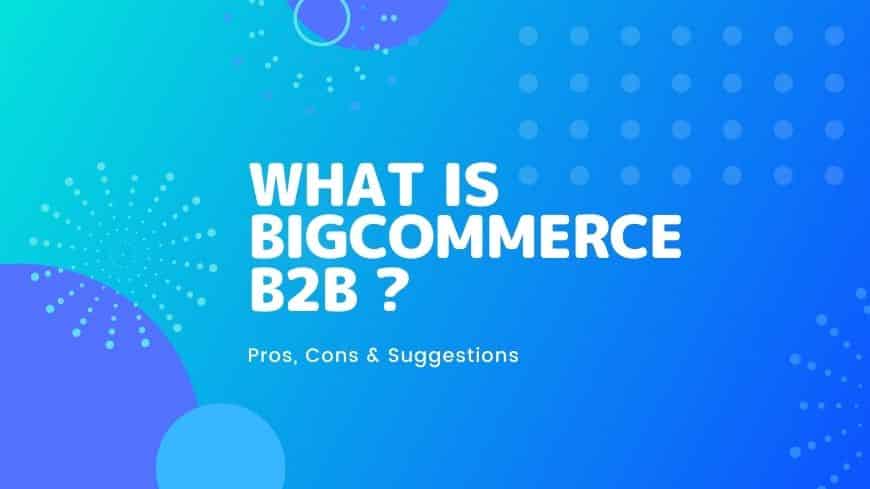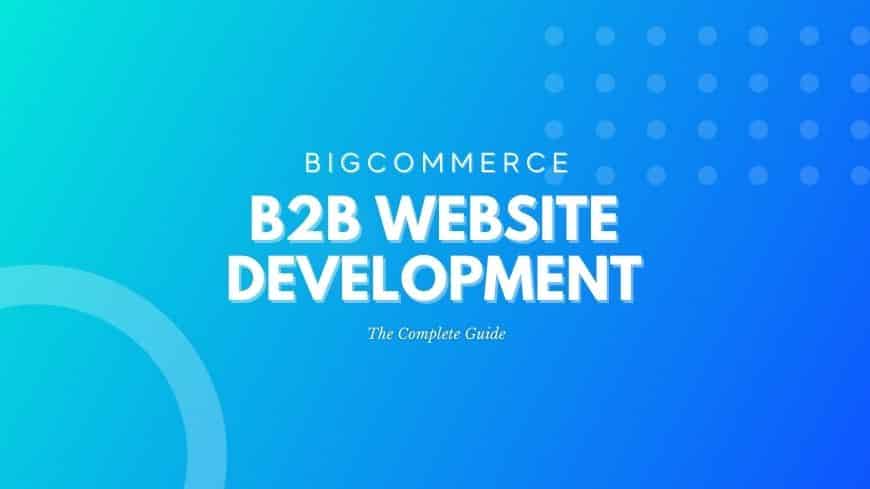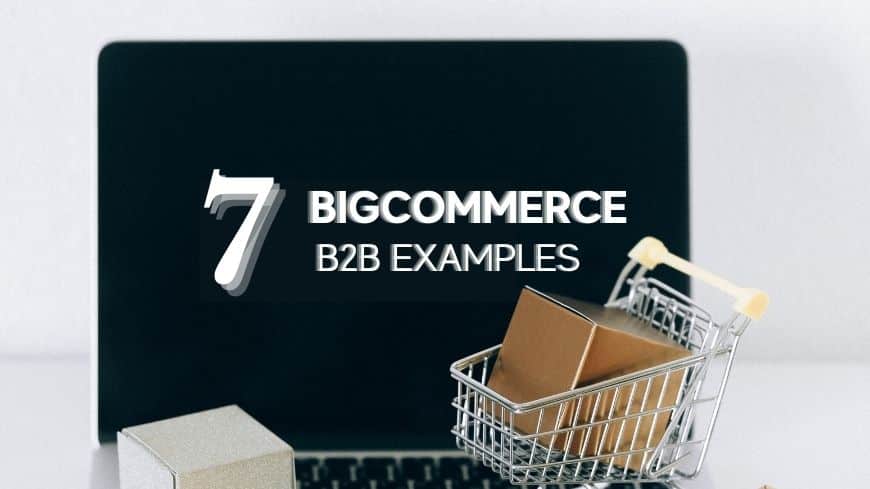Which is Better, Shopify vs BigCommerce?
BigCommerce and Shopify are similar in prices, but are they similar or different? Which is better: Shopify or BigCommerce? Take a look at our detailed comparison and decide which is the best fit for your eCommerce business.
Which Is Better Shopify or BigCommerce?
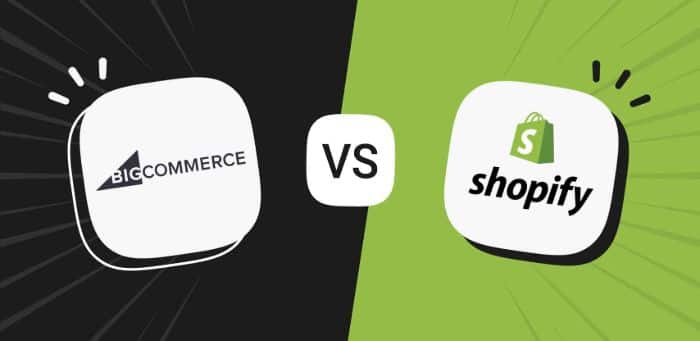
IN CASE you haven’t heard of the term “BigCommerce”, make sure to read this article!
Since both Shopify and BigCommerce are DIY site-building tools capable of creating an eCommerce site, they’d likely have their unique pros and cons.
You can check out the comparison table we have listed below.
Shopify | BigCommerce | |
Pros | Shopify is well-known for many of its advances:
| BigCommerce has many impressive feats:
|
Cons |
|
|
Overall, Shopify is a simple, easy-to-setup solution for newcomers that want to get familiar with how online selling works. At the same time, BigCommerce is an all-rounded solution for medium-sized businesses with excellent built-in features, high scalability and coding customization.
Shopify vs BigCommerce In Detailed Comparison
Let’s go into detail to understand more about how both platforms perform regarding many aspects: pricing, hosting, SEO, designs, etc.
Shopify vs BigCommerce Pricing Plans
In this regard, Shopify and BigCommerce have quite a lot of similar pricing milestones for their options. B2B customers are also advised to use the advanced and enterprise edition to manage wholesale orders for maximum convenience and extra features.
Shopify | BigCommerce | ||
Basic Shopify | $29/month. | BigCommerce Standard | $29.95/month. |
Shopify Standard | $79/month. | BigCommerce Plus | $79.95/month. |
Advanced Shopify | $299/month. | BigCommerce Pro | $299.95/month. |
Shopify Plus | Personalized. | BigCommerce Enterprise | Personalized. |
However, it’s worth noting that while BigCommerce doesn’t charge any fees besides the annual license fee, the Shopify platform still requires customers to pay transaction fees if they don’t use their Shopify Payments.
Shopify Plans | Fee per Transaction |
Basic Shopify | 2% |
Shopify Standard | 1% |
Advanced Shopify | 0.5% |
Shopify Plus | No transaction fee. |
As a result, the transaction fee is not welcome by both B2C and B2B sellers with lots of complaints. Meanwhile, Shopify Payments only available for certain countries, namely:
- Australia.
- Austria.
- Belgium.
- Canada.
- Denmark.
- Germany.
- Hong Kong SAR China.
- Ireland.
- Italy.
- Japan.
- The Netherlands.
- New Zealand.
- Singapore.
- Spain.
- Sweden.
- The United Kingdom.
- United States (only Puerto Rico).
Shopify vs BigCommerce’s Website hostings

PLAN to build your store with BigCommerce? Don’t miss our ultimate guide for B2B web development on this platform.
In this section, you can easily see that BigCommerce has a significant advantage over Shopify. Since BigCommerce is a Google Cloud-hosted eCommerce platform, you won’t have to think about finding other hosting services for your store. They claimed to have an overall uptime of over 99%.
According to many customer reviews, especially B2B businesses, this statement seems to be true without a doubt.
Besides, the platform is also greatly optimized to provide quicker loading time for pages, which offers considerable advantages in search result’s performance.
On the other hand, Shopify implements a content delivery network system (CDN) to use as the hosting solution for eCommerce websites. CDN is the worldwide network of servers that allow customers to access your store seamlessly from everywhere. Fastly, one of the most reputable CDN providers empowers the Shopify website system.
Shopify vs BigCommerce SEO
BigCommerce is well-optimized for the best SEO results, easily noticed via its instant loading time, lightweight and organized structure. Advanced SEO elements like metadata, URLs are all customizable.
On the other hand, Shopify has several technical flaws regarding URL folder structure. It necessitates customizing categories and taxonomies to meet the platform’s specific characteristics. Even though the problem does not apply to every storefront, it’s real trouble for users to be unable to change the website URL as their wish.
Even with custom tools of experienced users, canonical tags and a few other issues consistently persist on Shopify without permanent solutions.
Themes & designs
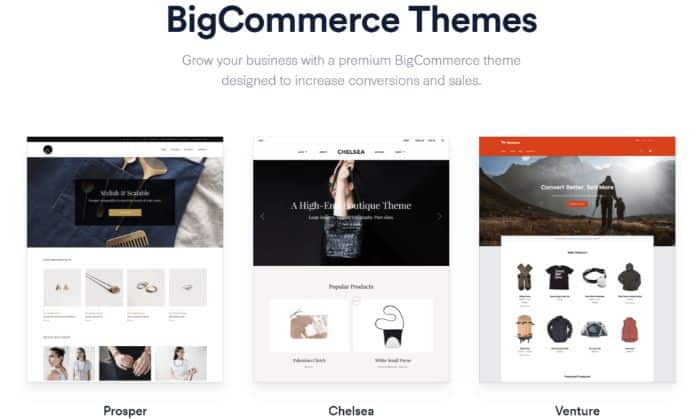
Shopify and BigCommerce have a limited number of free themes – Shopify has nine, and BigCommerce has twelve.
Both Shopify and BigCommerce offer a small number of free themes, yet compared to Shopify, BigCommerce allows more freedom in configuration with the drag-and-drop functionality. On the other hand, Shopify is unbelievably simple, allowing new sellers to instantly make minor adjustments then publish their store right away as wished.
For paid themes and designs, both platforms prepared a huge number of themes for you to choose from. Shopify offers over 70 premium themes ranging from $140 to $160 for each one while BigCommerce offers many more themes with a number of around 150. Its theme’s price is also much wider, ranging from $150 to $300, which provides more options to choose from.
Sales features
Shopify vs BigCommerce, which one is better for maximum sales effort? This is a debatable topic since BigCommerce and Shopify both aimed at different approaches to achieve the effectiveness of eCommerce sales.
With most users being new sellers and small drop shipping businesses, together with a huge app marketplace, Shopify helps its sellers expand their store via maximizing store customization ability. Third-party extensions can be free or paid depending on their needs.
Meanwhile, BigCommerce’s built-in features are on another level. Even if you don’t try any marketplace apps or pay even a penny for third-party extensions, the sales features package you already got is still working effectively.
There are several functions that BigCommerce offers in the built-in feature system that require Shopify to install several apps just to be an equivalent option. Examples are product ratings, customer reviews, real-time shipping quotes or company (staff) account management.
Marketing features

To reiterate, BigCommerce has more built-in functionality than Shopify, but Shopify’s app store provides more choices for sellers in both sales and marketing functions. With its plan, BigCommerce gives you the ability to:
- Create and apply discount codes on products of your choice.
- Organize and set up URL metadata, as well as other SEO-related properties.
- Integrate Google Shopping for better performance.
To personalize the consumers’ shopping experiences, BigCommerce provides a variety of segmentation tools. The platforms also automatically send email to abandoned carts for maximum engagements to customers who leave the site.
On the other hand, Shopify helps you understand your products deeply by studying these to see how specific products have sold over time – but it doesn’t include any of the analytics you’ll need. To gain access to sales and earnings data, for example, you’ll need to move to a more premium Shopify package.
Payment options
Then, is Shopify better than BigCommerce in terms of payment methods? Actually, they are equal.
Both Shopify and BigCommerce accept a large variety of payment methods, yet BigCommerce takes the lead with much superior quantity. This platform supports more than 40 methods, including Paypal, Amazon Pay, Authorize.net, and even lesser ones like Stripe. It only misses a few standard payment methods like SEB or Swedbank.
Initially, Shopify supported fewer payment options with PayPal, Amazon Pay, Apple Pay and Authorize.net. However, Shopify has many third-party payment extensions that allow endless payment method support.
However, although there are at least hundreds of payment services that can be integrated into the system, Shopify Payments does not charge transaction fees. As mentioned above, the payment system is very limited, only working in certain countries and areas.
Besides, since you still need to offer a wide range of payment options to customers, you still end up having to pay extras for transactions from other payment methods.
Data securities
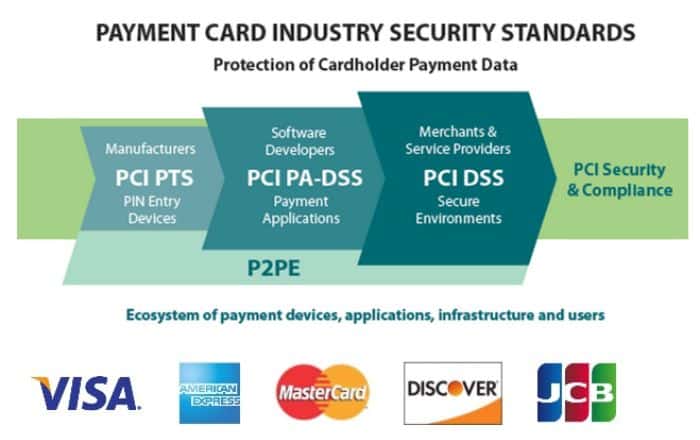
LEARN ALL about BigCommerce’s pricing plans for wholesale & retail in case you’re considering using BigCommerce.
How about Data security of Shopify vs BigCommerce?
For wholesalers, data security is an important topic. No store owners want a data break in any way, especially when they’re in the middle of a sale or marketing campaign. That’s why there are several safety measures for data to be encrypted and passed safely.
Compared to BigCommerce, Shopify is actually on the same level of security. Accepting credit card purchases online necessitates adherence to PCI DSS (Payment Card Industry Data Security Standard) guidelines, which Shopify satisfies across all stages.
All Shopify client pages are PCI compliant with SSL certification to ensure that all Shopify content is encrypted. Sensitive information is not intercepted and content is not leaked out while transmitting over HTTPS.
Like Shopify, BigCommerce is also a PCI DSS compliant provider. BigCommerce even offers next-level encryption via an upgradable paid SSL certificate with the price ranging from $59 to $299.
Support services
Both Shopify and BigCommerce offer a wide range of support services like phone support, live chat support, email support. They also prepared an efficient help center with community forums and lots of video tutorials for newcomers.
While BigCommerce help center is divided into sections, which create a user-friendly interface for better info research, Shopify tried to implement reminders all over the Shopify website dashboard and link them to the help center for users that like to experience features by themselves.
For both platforms, by upgrading to the top pricing plan, sellers earn for themselves the priority support. With the Shopify Plus edition, sellers gain access to a dedicated Shopify supporter while with the BigCommerce Enterprise edition, you’ll get on board with a BigCommerce specialist and receive high-priority support when needed.
Conclusion
After reading our article, having a quick look at a comparison of Shopify vs BigCommerce, do you have your own choice of which one is better or more suitable for your business goals?
From the detailed comparison above, we can assure you that BigCommerce is the top choice for wholesale and retail when it comes to a fully-fedge built-in solution that works perfectly. BigCommerce is scalable, which means it’s available for upgrades if you plan to expand your business soon.
Meanwhile, Shopify is still the top choice for small businesses or wholesalers that are looking for a fast and solid solution to build their eCommerce website as fast as they can. The whole system is simple, requires little to no coding knowledge and is customizable with a vast marketplace full of useful applications.
About BSS |
Start Building Your Successful B2B Website Now! Fill the form, and our sales reps will contact you to arrange a consultation. |

